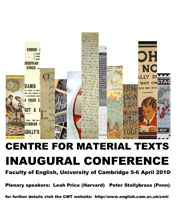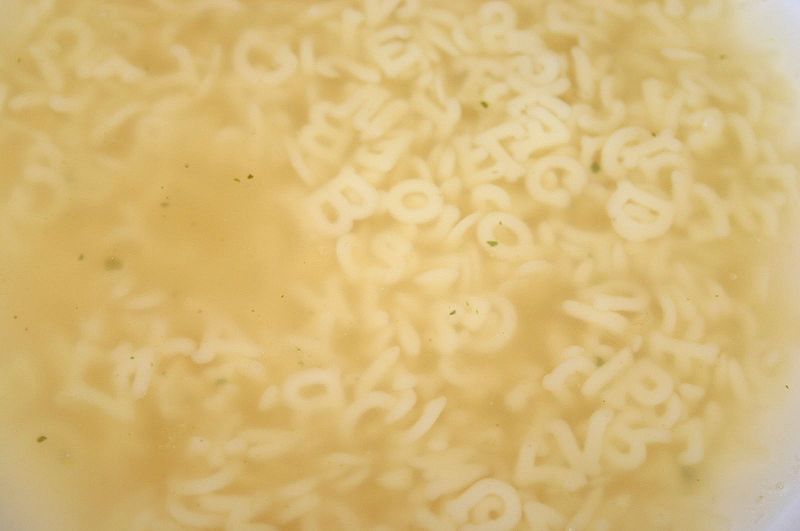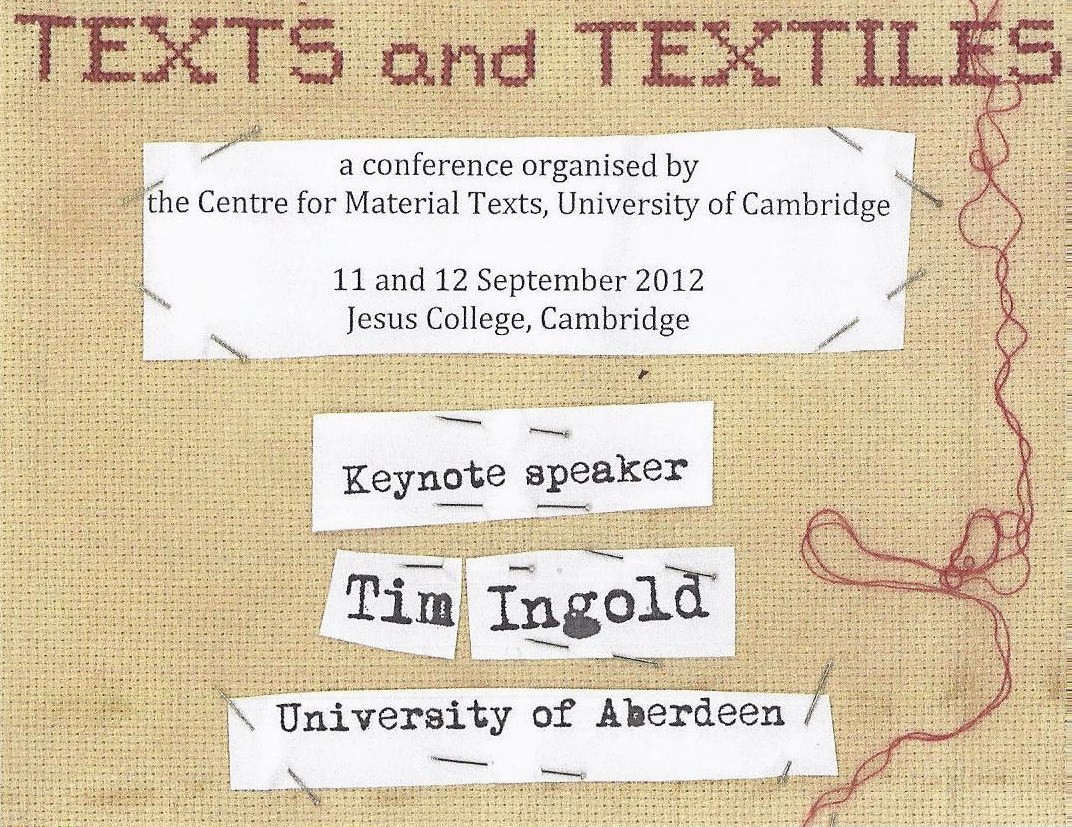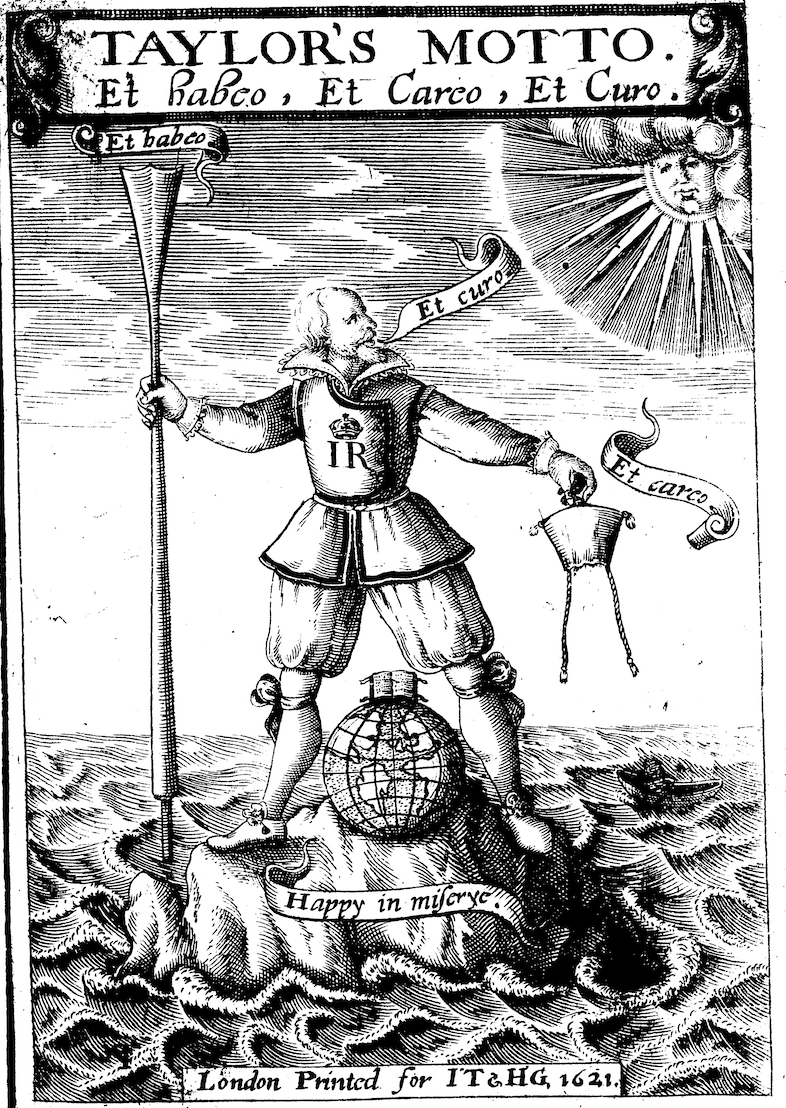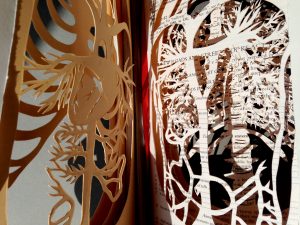About
 The Centre for Material Texts at Cambridge fosters research into the physical forms in which texts are embodied and circulated, and the ways in which those forms have interacted with literary cultures and historical contexts. Based in the Faculty of English, it provides a focus for editorial and bibliographical work, and for critical, theoretical and historical projects of many kinds. The CMT fosters the study of a wide variety of media–from spoken words to celluloid, from manuscript to XML–and brings together academics and postgraduates from a range of faculties and departments across the University. This is a forum for starting new conversations which will push back the boundaries of knowledge in one of the most exciting areas of humanities research.
The Centre for Material Texts at Cambridge fosters research into the physical forms in which texts are embodied and circulated, and the ways in which those forms have interacted with literary cultures and historical contexts. Based in the Faculty of English, it provides a focus for editorial and bibliographical work, and for critical, theoretical and historical projects of many kinds. The CMT fosters the study of a wide variety of media–from spoken words to celluloid, from manuscript to XML–and brings together academics and postgraduates from a range of faculties and departments across the University. This is a forum for starting new conversations which will push back the boundaries of knowledge in one of the most exciting areas of humanities research.
What is a material text?
A common assumption about texts – whether we are talking about plays, or works of philosophy, or letters – is that they are primarily mental events, which are merely reflected (often very inadequately) in their material forms. A writer may, in haste, put down the wrong word, a printer may misread their manuscript, or a censor may cut out sections of a book, and these acts work to corrupt the purity and integrity of the ‘real’ text. Such a view of the text accords primacy to writers and to their intentions, which readers should be able to access in their pristine state, in a meeting of minds. If you pick up a copy of a ‘classic’ in a bookstore, the chances are that it will have been edited with an eye to delivering ‘the text as the author intended it’, with nothing added and nothing taken away.
In reality, texts are always a good deal messier than this idea-centred account allows. The notion that any writer has a single, final intention is false, often demonstrably so; writers change their minds, revising their texts and responding to the unfolding form of their works in unforeseen, unpredictable ways. In addition, writing is a collaborative process, involving the writer in dealings with materials and institutions that help to give the text a presence in the world. The writer’s tools (pen-and-ink, typewriter, word-processor) may have a significant impact on the way that the text develops, as may the institutions and the media (manuscript, print, film, performance) by which it circulates. As the bibliographer D. F. McKenzie put it, ‘forms effect meanings’; every text is a negotiation between its creator(s) and a welter of worldly circumstances.
In recent years, academics across the humanities have been making a ‘material turn’ which has nowhere been so prominent as in our attitude to the words we read. The medium may not quite (as Marshall McLuhan had it) be the message, but its significance cannot be underestimated. The purpose of the Cambridge Centre for Material Texts is to foster the next generation of research into this fascinating field of inquiry.
The Centre
Established in July 2009, the Centre is run by a Director and an Executive Committee. Its website publicizes news and events, provides online research and teaching materials, and allows members of the Centre to communicate via an intranet Forum (RAVEN protected; see tab to right). In time it will also offer dedicated workspaces for the development of research projects. The Centre has its own seminar series, and holds a variety of colloquia and conferences, as well as assisting with the development of research and teaching initiatives. It has strong links with the Cambridge library community, and its website will also be used for online exhibitions which will bring many kinds of material text to a wider audience.
Membership of the Centre is open to postgraduates and academics at the University of Cambridge, and to any scholars with an interest who are visiting Cambridge, for however long or short a time. If you are interested in joining the CMT, please send a brief description of your research interests and a photograph to Alison Knight <aek35@cam.ac.uk>. You can sign up for our news mailings by following the instructions at https://lists.cam.ac.uk/mailman/listinfo (the list name is ‘english-cmt’).
GRADUATE TRAINING SEMINARS
Any Cambridge graduate students with training needs in the field of the material text (whether bibliographical, codicological, palaeographical, philological…) should contact the Director (jes1003@cam.ac.uk).
CONFERENCE REPORTS
The CMT has run a number of major conferences: for reports, click on the links below
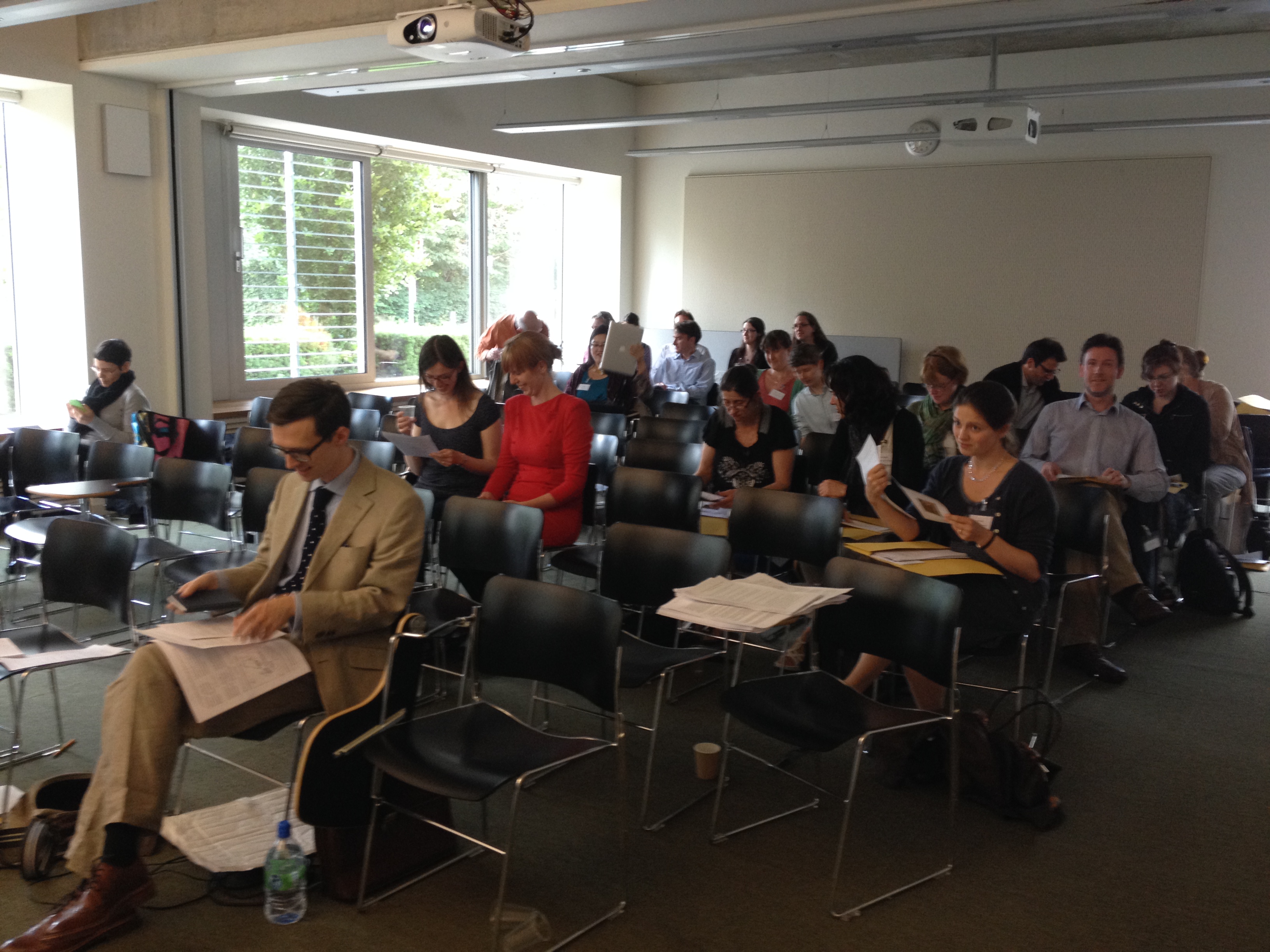 Writing Britain 500-1500 (2014)
Writing Britain 500-1500 (2014)
Newes from No Place: A Conference Upon the Workes of John Taylor, the Water Poet (2017)
Paper-Stuff: Materiality, Technology and Invention
